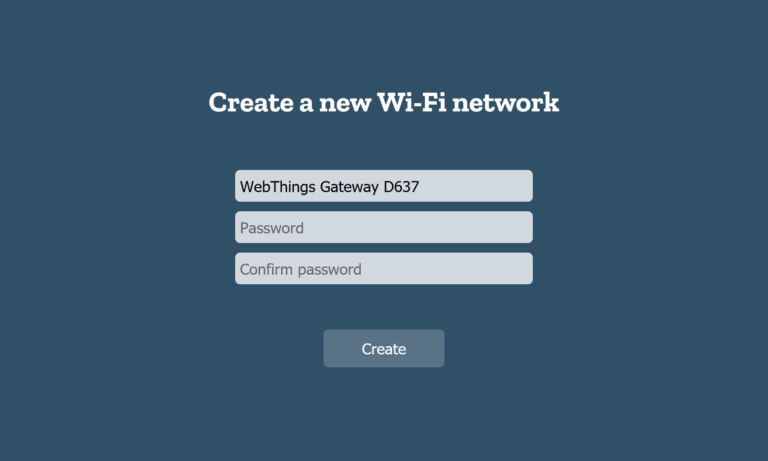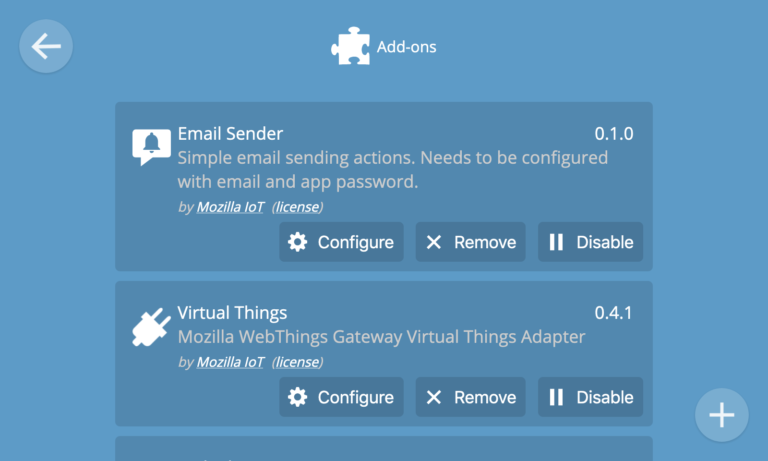In April, the Mozilla IoT team relaunched Project Things as “WebThings” with its two components: WebThings Gateway and WebThings Framework. WebThings is an open-source implementation of W3C’s Web of Things standard for monitoring and controlling connected devices on the web.
On Friday, the team announced the release of WebThings Gateway 0.9 and the availability of its first experimental builds for Turris Omnia. This release is also the first version of WebThings Gateway to support the new Raspberry Pi 4. Along with that, they have also released WebThings framework 0.12.
W3C’s Web of Things standard
The Internet of Things (IoT) has a lot of potential, but it suffers from a lack of interoperability across platforms. The Web of Things aims to solve this by building a decentralized IoT using the web as its application layer. It provides mechanisms to formally describe IoT interfaces to enable IoT devices and services interact with each other, independent of their underlying implementation. To connect real-world things to the web, each thing is assigned a URI to make them linkable and discoverable. It is currently under the process of standardization at the W3C.
Updates in WebThings Gateway 0.9 and WebThings Framework 0.12
WebThings Gateway is a software distribution for smart home gateways that allows users to monitor and control their smart home devices over the web, without a middleman. Among the protocols it supports are HomeKit, ZigBee, Thread, MQTT, Weave, AMQP. Among the languages it supports are JS (Node.js), Python, Rust, Java, and C++.
The experimental builds of WebThings Gateway 0.9 are based on OpenWrt, a Linux operating system for embedded devices. They come with a new first-time setup for configuring the gateway as a router and Wi-Fi access point itself instead of connecting to an existing Wi-Fi network.

Source: Mozilla
However, Mozilla noted that the router configurations are still pretty basic and are not yet ready to replace your existing wireless router. “This is just our first step along the path to creating a full software distribution for wireless routers,” reads the announcement. We can expect support for other wireless routers and router developer brands in the near future.
This version ships with a new type of add-on called notifier add-ons. In previous gateway versions, push notifications were the only way for notifying users of any event. But, this mechanism is not supported by all browsers and is also not considered to be the most convenient way of notifying users.
As a solution, Mozilla came up with notifier add-ons using which you can create a set of outlets. These outlets will act as an output for a defined rule. For instance, you can set up a rule to get an SMS or an email whenever any motion is detected in your home. You can also configure a notifier with a title, a message, and a priority level.

Source: Mozilla
The WebThings Gateway 0.9 and WebThings Framework 0.12 bring a few changes to Thing Descriptions as well to make it more aligned with the latest W3C drafts. A Thing Description provides a vocabulary to describe physical devices connected to the web in a machine-readable format with a default JSON encoding. The “name” is now changed to “title” and there are experimental new properties of the Thing Descriptions exposed by the gateway.
To know more check out Mozilla’s official announcement. To get started, head over to its GitHub repository.
Read Next
Mozilla introduces Pyodide, a Python data science stack compiled to WebAssembly
Mozilla developers have built BugBug which uses machine learning to triage Firefox bugs










![How to create sales analysis app in Qlik Sense using DAR method [Tutorial] Financial and Technical Data Analysis Graph Showing Search Findings](https://hub.packtpub.com/wp-content/uploads/2018/08/iStock-877278574-218x150.jpg)